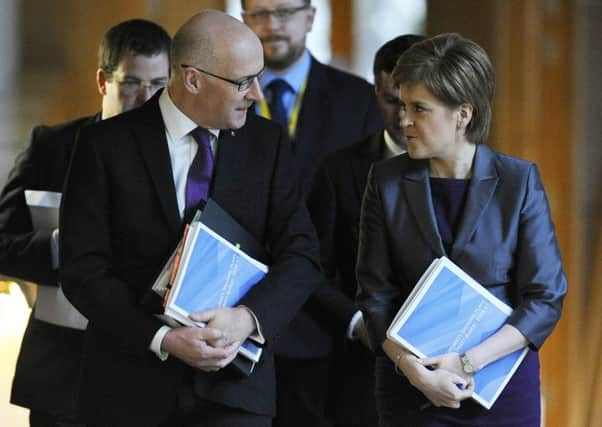David Bell: Rise in income tax need not lead to inequality


This is because John Swinney has decided to set the Scottish rate of income tax (SRIT) at 10p. This is the neutral position: the Scottish budget will be the same as it would have been under the Barnett Formula. He could have increased SRIT to support extra spending aimed at the poor. He could have reduced SRIT to stimulate business activity. Neither of these options have been taken.
SRIT has to be set at the same level across all tax bands. Thus setting it at 11p would have meant that Scottish basic rate taxpayers would pay 21p in the pound, higher rate taxpayers would pay 41p and additional rate tax payers would pay 46p.
Advertisement
Hide AdAdvertisement
Hide AdThe Scottish Government’s argument was that setting the same increase across all bands would disadvantage basic rate taxpayers more than those on higher rates, which would be inconsistent with its objective of reducing inequality.
Whether an increase in SRIT would cause a significant increase in income inequality is open to question. However, this argument neglects the fact that the overall effect of increased taxes must include not only include the effects of raising the money, but also how it is spent. In principle, it would be possible to spend the additional tax revenues on measures aimed at the low paid and those on no pay at all, so that the overall effect of the SRIT rise reduces inequality.
• READ MORE: Budget: What it all means for Scots in 2016
Next year, once the Scotland Bill is passed, there will be an opportunity to fine-tune the rates and bands of income tax, rather than holding them in lock-step. The implication of the arguments presented by Mr Swinney in this year’s Budget is that in order to reduce inequality in Scotland, higher and additional rates of income tax are likely to rise relative to those in the rest of the UK. Whether this objective is achieved will depend on how taxpayers react to these higher rates: increasing tax rates will not necessarily tax revenues.
An alternative mechanism for reducing inequality might have been to tinker with the council tax. Increasing the steps between bands would have been a temporary inequality-reducing measure before a more radical reform, options for which were set out in by the Commission on Local Tax Reform earlier this week.
Instead, for the ninth year in a row, council tax has been frozen. In England, Chancellor George Osborne has allowed councils to increase council tax by 2 per cent, providing the additional revenue is spent on social care. This seems like a modestly progressive measure, but Scottish local authorities cannot follow suit because the Scottish Government will reduce their funding if they increase council tax.
Overall, it is difficult to detect a clear message in respect of inequalities from the 2016-17 draft Budget. The debate will no doubt intensify over the next few months both because of the Holyrood election and as the prospect of additional tax powers comes ever closer.
• David Bell is professor of economics at Stirling University